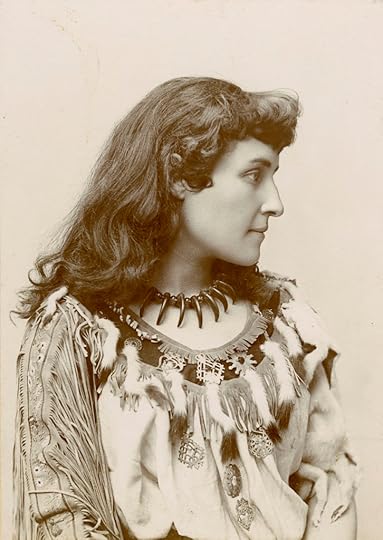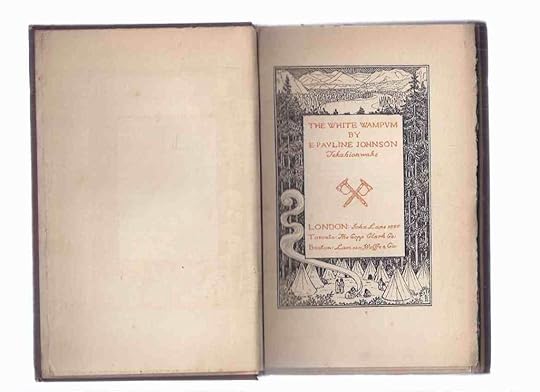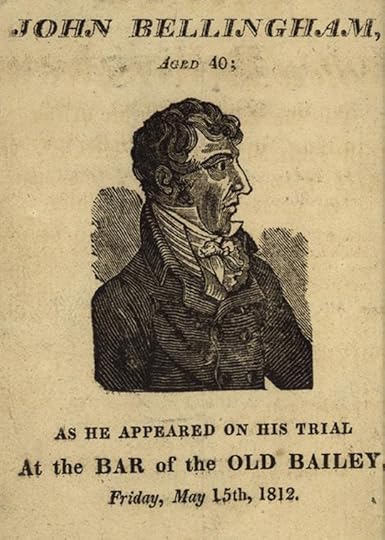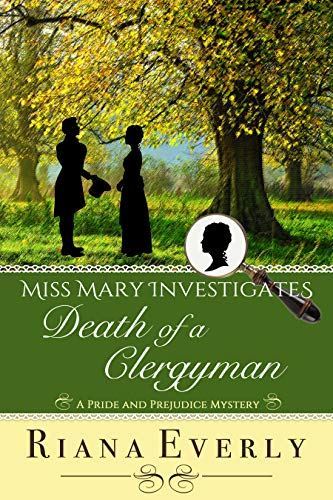Riana Everly's Blog, page 5
June 12, 2021
Sing to Us: E. Pauline Johnson ~ Tekahionwake
I have just finished the first round of edits on a contemporary novel based on Jane Austen’s wonderful Persuasion. Despite the story taking place in the present (well, post-COVID, so perhaps that makes it fantasy), I still found myself diving down the rabbit hole of historical research.
One such dive involved poetry. My main character, Anne Eliot, is a composer and she is working on a piece for choir. A piece for choir involves words and that usually means poetry, so I began my search for the perfect text.

I wanted something very Canadian, something steeped in tradition, but also modern and forward-looking. And I wanted poetry that sang to my soul. I hunted and I searched and I scrounged and found nothing that really called out to me. And then I saw a name I knew. E. Pauline Johnson.
I’d heard of her before and certainly knew her photograph, but had never really taken the time to read her poetry. So I sat down with a collection and began to read. Oh, how glad I am that I did! This was exactly what I wanted. Her poetry is rooted in the land and in her indigenous North American traditions, while still speaking to European sensibilities. And most importantly, it sings. It sings to my soul. I am not a particular aficionada of poetry, as much as I appreciate it, but sometimes something just reaches out and grabs me. And this is exactly what happened. As I read her words, melodies formed in my head. I can just imagine the fabulous riches a real composer could find in her work.

Emily Pauline Johnson was born in 1861 in what is now Ontario, Canada. Her father was Mohawk and her mother English, and she often went by her Mohawk name, Tekahionwake, meaning Double Wampum. Despite the inherent prejudice her parents faced from their mixed marriage, she was brought up in comfortable and culturally rich circumstances. Her father, George, was chief of the Six Nations, spoke English, French, German, and the languages of the Six Nations Confederacy, and worked as an interpreter and cultural liaison between the federal government and the indigenous peoples of the area. Her mother, born Emily Susanna Howells in England, came from a family known for their interest in the literary arts. Due to a large extent to George’s reputation, their home was often host to quite distinguished guests, such as the Marquess of Lorne, Lord Dufferin, and Princess Louise, and Pauline’s elegant manners owed much to this aspect of her childhood.
As might be imagined, Johnson’s life and work were greatly influenced by her dual heritage. She received a good if modest European education from her mother and from Brantford Collegiate Institute, where she graduated in 1877, and learned about her Mohawk background from her grandfather Chief John Smoke Johnson, whose dramatic talents inspired many of Pauline’s poetic works.
When George died in 1884 the family was forced to leave their home and move to nearby Brantford. Pauline turned to writing as means of supporting herself. She had been writing poetry since her teens, and between 1884 and 1886 published several poems. Four were in Gems of Poetry (New York), eight were in The Week (Toronto), and several occasional pieces appeared elsewhere, including a poem written for the retirement of Seneca orator Red Jacket in 1885 and the dedication of a statue of Joseph Brant (Thayendanegea) the following year. By 1886 she had acquired a considerable reputation and it was now that she began signing her works as both E. Pauline Johnson and Tekahionwake.
In 1892 she was invited to participate in an evening of poetry sponsored by the Young Men’s Liberal Club in Toronto, which she did to considerable success. Here her childhood lessons in elegance, manners, and deportment came into play, along with the dramatic gifts and lessons from her grandfather. The audience was delighted with her recitation of her poems, and she soon embarked on a tour of towns and villages across Ontario. She had become, if not the serious poet she wished to be, successful as a popular performer of her own poetry.

Over the next seventeen years she toured Canada and parts of the United States, and presented a series of successful recitals in London, England. While there, she arranged for the publication of her first collection of poetry, The White Wampum (London, Toronto, and Boston, 1895). Her second collection, Canadian Born, was published in 1903, and Flint and Feather was published in 1912.
She continued touring and writing poetry until ill health forced her to retire in 1909. She chose Vancouver, British Columbia, as her new home and it was here that she died of breast cancer in 1913, three days before her birthday.
Johnson’s poetry really celebrates her heritage and her home and is rich in early expressions of Canadian nationalism. She turned the styles and techniques of English poetry to the landscapes and scenes that she knew: gurgling brooks, towering pine trees, purple sunsets, and a lover in a canoe. She extoled the glories of the wilderness and wrote ballads with episodes drawn from First Nations history. Hers was not an easy life, having to straddle late Victorian expectations as an unmarried performer, societal and institutional racism as an Indigenous woman, and just surviving as a woman artist in a time when women’s rights were more fantasy than reality.
As I wrote my novel and looked for the perfect poem for my composer’s music, I found so many wonderful pieces, I wished I could include them all. Choosing just one was an almost impossible task, but I think I’m happy with my selection.
THE BIRDS’ LULLABY
I
Sing to us, cedars; the twilight is creeping
With shadowy garments, the wilderness through;
All day we have carolled, and now would be sleeping,
So echo the anthems we warbled to you;
While we swing, swing,
And your branches sing,
And we drowse to your dreamy whispering.
II
Sing to us, cedars; the night-wind is sighing,
Is wooing, is pleading, to hear you reply;
And here in your arms we are restfully lying,
And longing to dream to your soft lullaby;
While we swing, swing,
And your branches sing,
And we drowse to your dreamy whispering.
III
Sing to us, cedars; your voice is so lowly,
Your breathing so fragrant, your branches so strong;
Our little nest-cradles are swaying so slowly,
While zephyrs are breathing their slumberous song.
And we swing, swing,
While your branches sing,
And we drowse to your dreamy whispering.
And here is another piece I was – and still am – seriously considering for including somewhere.
THE SONGSTER
Music, music with throb and swing,
Of a plaintive note, and long;
‘Tis a note no human throat could sing,
No harp with its dulcet golden string,—
Nor lute, nor lyre with liquid ring,
Is sweet as the robin’s song.
He sings for love of the season
When the days grow warm and long,
For the beautiful God-sent reason
That his breast was born for song.
Calling, calling so fresh and clear,
Through the song-sweet days of May;
Warbling there, and whistling here,
He swells his voice on the drinking ear,
On the great, wide, pulsing atmosphere
Till his music drowns the day.
He sings for love of the season
When the days grow warm and long,
For the beautiful God-sent reason
That his breast was born for song.
I hope this beautiful poetry makes your heart sing as it did mine.
You can read more of her beautiful poetry on Project Gutenburg: https://www.gutenberg.org/ebooks/author/1209
June 7, 2021
Austen Authors – Beethoven’s Eroica
Please check out my post at Austen Authors, where I talk a bit about Beethoven, Napoleon, and one of the coolest stories of the early 1800s.
Historical Tidbits: A Heroic Symphony
May 11, 2021
May 11, 1812: The Assassination of Spencer Perceval
(Posthumous portrait by G. F. Joseph, 1812)
Today, May 11, is the anniversary of the only assassination of a British Prime Minister.
On May 11, 1812 at about 5:15 in the evening, British Prime Minister Spencer Perceval was fatally shot in the lobby of the House of Commons in London. He is the only prime minister to have met such a fate. His attacker was a businessman named John Bellingham, whose complaints to the government had gone unheeded.
Perceval was born in 1762, the younger son of an Anglo-Irish earl. He studied law and later was elected as Member of Parliament for Northampton as a Tory. His reputation as a politician was good: he was against many activities we consider vices, drank moderately, donated generously, and enjoyed spending time with his thirteen children. Of course, with thirteen children, he can hardly have found much time for vice.
His government did, however, incur the wrath of John Bellingham, who blamed his personal woes on a careless British government. On a business venture in Russia in 1805, Bellingham was arrested for the supposed unpaid debt of a business associate and he spent four years in a Russian prison.
 John Bellingham
John BellinghamWhen he returned home to England he set about demanding compensation for his ordeal from the British government, whom he considered to blame for ignoring his constant appeals for help. He petitioned the Foreign Office, the Treasury, the Privy Council, and Prime Minister Perceval himself, but all pleas were denied. In 1811 he returned to his wife in Liverpool, but he could not abandon his need for justice, and in February of 1812 he returned to London to renew his cause. He met with failure. Seeing no other means of redress, he decided to exact retribution through violence. On April 20, 1812, he purchased two pistols and had a tailor sew an inside pocket into one of his coats.
He carried out the killing in the early evening of May 11, just as parliament was preparing for its evening session. He could have escaped in the chaos that followed the shooting, but instead he sat quietly on a bench until he was seized by an official who had witnessed the event. He submitted without a struggle. When questioned as to why he had done it, he replied that he was rectifying a denial of justice on the part of the government.
Bellingham was detained and sent to trial for the murder of Spencer Perceval four days later. He was deemed to be insane and was convicted and sentenced to hang. He died on the gallows at Newgate Prison on May 18, 1812.
This tragic tale sets the scene for my second Miss Mary Investigates mystery, for it is this assassination that prevents Mary from returning to London, and keeping her in the town of Highbury. Here is an excerpt from the first chapter of Death in Highbury: An Emma Mystery.
***
[image error]
But even as the carriage had drawn up to the inn, and as the footman had leapt from the box to announce their arrival and ask after the Darcys, Mary could see that something was amiss. A man who must have been the innkeeper rushed up to the footman and driver and conferred with them in hushed tones, after which Mary was hustled into this small but comfortable salon and presented with a pot of tea and a tray of small sandwiches and this letter. She knew the handwriting well, for Mr. Darcy had a distinctive hand. But the presence of the letter meant that the man himself, and her sister with him, were not here.
Without reading a word, she could see that something was wrong. The usually smooth and crisp handwriting was jagged and uneven, the result of hurry and distress, a portent of the dreadful matter mentioned within. She read the content, and then in shock, read it again.
Dear Sister Mary,
I must write quickly, and will dispense with pleasantries, for which you may castigate me when next we meet. All your family are well, never fear. But some dire events have occurred in London which prevent your sister and me from meeting you in Highbury as planned, and which must necessitate your remaining in that town for some amount of time.
I had considered caution in relating this to you out of concern for your sensibilities, but I know you to be a reasonable and intelligent young woman who will not swoon at the news. I will not insult you by refusing to impart it.
London is all in an uproar tonight, for only minutes ago, from the time that I write, the Right Honourable Spencer Perceval, our Prime Minister, was shot and killed in front of Parliament. I was in the neighbourhood when it occurred and heard the outcry but not the shot, and came right home to write to you.
I have sent Elizabeth back to Longbourn. She is not pleased with me, but her safety is paramount, and she may shout at me for all of her life should she wish. My only concern is her health and wellbeing. I will join her there as soon as I am able to conclude my affairs here, and we will remain there for several days until the City is brought back into order.
I must beg your forgiveness, Mary, for abandoning you in this way, and must entreat you not to return home, nor to travel anywhere near London, until such time as it is safe once more.
I will not forsake you altogether. I know a gentleman—as fine a man as I have met, and one of the few very sensible people of my acquaintance—who lives not far from Highbury. I have already written to him to request his assistance in providing for your security and comfort whilst we all await a return to order in our country. His name is George Knightley, of Donwell Abbey, and he will see you right.
I will send this message off at once with a fast rider, along with sufficient funds to see to your immediate comfort at the Crown Inn upon your arrival. (That explained the private salon and the tea and food.) Enclosed please find five pounds for any further needs you might incur, with a promise for more should it be required.
Your affectionate brother,
FD
May 10, 2021
Persusasion in the Present – Austen Authors
I have almost completed a new modern romance, this time based on Persuasion. Please check out my blog post about it at Austen Authors. There’s some chatter about the novel, my particular challenges with it, and – of course – a short excerpt!
Persuasion in the Present Tense
April 10, 2021
Miss Mary Speaks!

Mary Bennet has agreed to an interview! Head over to The Protagonist Speaks to see what she has to say.
https://theprotagonistspeaks.com/2021/04/09/miss-bennet-of-death-of-a-clergyman-by-riana-everly/
You might find some of the other interviews fascinating too. Have fun there.
April 9, 2021
Austen Authors – Neurodiversity and Mr. Darcy
I’ve wondered for a while if Jane Austen’s character Mr. Darcy was based on someone she knew who was on the autism spectrum. Read on for some of my thoughts on the subject.
Neurodiversity and Mr. Darcy
March 13, 2021
Austen Authors Day – Regional and Societal Accents
Please join me over at Austen Authors where I talk about the regional and societal accents at play in my novel Teaching Eliza. There are some fascinating videos, and one swoon-worthy scene as well.
Regional and Social Accents in England
March 5, 2021
Off to the Races
Today I’m visiting Austenesque Reviews with a guest post on horse racing in Regency England.
Guest Post with Author Riana Everly!!!
February 24, 2021
Blog Tour – Murder and Mayhem
The final stop on my blog tour took me to Diary of an Eccentric, where I discuss the real murder that set Mary and Alexander in the town of Highbury to solve their fictional murders. This particular murder was nothing other than the assassination of British Prime Minister Spencer Perceval on May 11, 1812.
Here is the post, complete with an excerpt from the book.
February 22, 2021
Death in Highbury – Guest Post with Riana Everly & Giveaway
My blog tour continues today at From Pemberley to Milton, always a lovely place to stop for book-related material. Today, a picture tour of Surrey, where Death in Highbury takes place.
Good Afternoon everyone,
Today I have the pleasure to welcome once more Riana Everly to From Pemberley to Milton to talk about Death in Highbury, book 2 in theMiss Mary Investigates series. I’ve mentioned before that Ms. Everly is an author I always love to receive here because of her interesting guest posts. She always writes the most informative posts, and today is no exception. After having read and reviewedThe Mystery of the Missing Heiress ( the prequel) andDeath of a Clergyman (Book 1), I was very curious to see where Miss Mary and Alexander would go, and Ms Everly literally showed me that.
I hope you enjoy the guest post with all those amazing pictures, and the excerpts Ms Everly brought today  Don’t forget to comment to apply to the giveaway
Don’t forget to comment to apply to the giveaway 
.
Thank you so much for letting me stop at this fabulous…
View original post 1,695 more words





